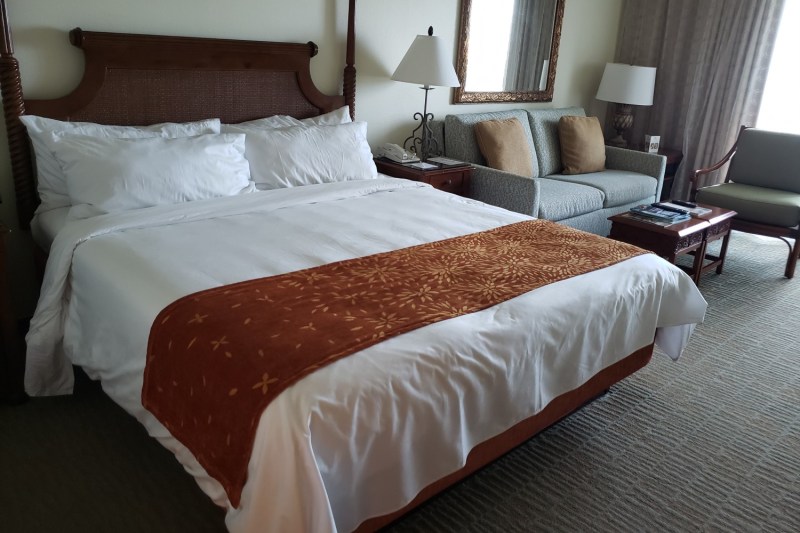Sometimes, it’s hard enough to get a good night’s sleep at home. When we’re traveling, it can feel even harder. What can we do to finally fall and stay asleep?
Just because we’re away from home doesn’t mean we have to go sleepless wherever we’re traveling. Here’s some advice on how to get some rest so you can better enjoy your trip.
Why Is It Tough to Sleep While Traveling?

If you’re on a long flight, train ride, or car ride that extends into the night, we can easily understand how and why jet lag happens. That plane, train, or car seat probably wasn’t designed primarily for sleep. The surroundings may be particularly loud and bright. The occasional turbulence doesn’t help, either.
If you’re camping outdoors, there’s the whole matter of adjusting to the outdoor environment and having the right equipment to feel comfortable. Even if you’re at the hotel or vacation rental unit, it’s nonetheless a different environment that your body has to adapt to. Fortunately, we have solutions at hand that can help in making that home away from home feel more like a restful home.
What Can We Do to Get Some Sleep?

If you’re preparing for a trip that lasts three days or longer, try moving your bedtime at least an hour earlier, starting three days before you leave. It might also be worthwhile to start taking melatonin at your preferred bedtime in the time zone you’re venturing to. Melatonin is the hormone that helps you sleep, and extensive travel may disrupt your circadian rhythm, as the experts at Johns Hopkins University and the National Sleep Foundation have noted, so an extra boost of melatonin may help restore your internal balance.
Once you reach your destination, try to get some natural light as soon as you can. Daytime exercise can also help in restoring your body’s circadian rhythm and reminding your body that you need sleep. Since dehydration can exacerbate jet lag, make sure to drink plenty of water during your trip and be careful when indulging in alcoholic and caffeinated beverages, as they can exacerbate dehydration.
What Else Can We Do for a Better Night’s Sleep While Traveling?

If you’re doing a nighttime flight, train ride, or road trip, try powering down your electronic devices, as they emit blue light that confuses your circadian rhythm at night. If you can, sit by the window, as that can give you more control over your lighting. Make sure to bring accessories like a travel pillow, an eye mask, earplugs, and a travel blanket to add some comfort while blocking unwanted disruptions like noise and bright light. If you need something stronger to provide peace and quiet, remember to bring a good pair of noise-canceling headphones to block out that noise. Then, try a podcast, such as Sleep with Me, Slow Radio, You Must Remember This, and Criminal (yes, really!). They can calm you down, distract you from outside interference, and make it easier to doze off.
If you’re at your destination and trying to figure out how to fall asleep, keep your space as dark and as quiet as you can in order to create a better environment for sleep. If you’re at a hotel room or vacation rental with a controllable thermostat, lower the temperature a bit. If you’re camping, make sure your air mattress or sleeping bag is ready before you call it a night. Wherever you’re staying the night, maintain your typical bedtime routine — whether it involves a hot bath, some light evening reading, or flipping on some classical music — to remind your body when to prepare for sleep.



